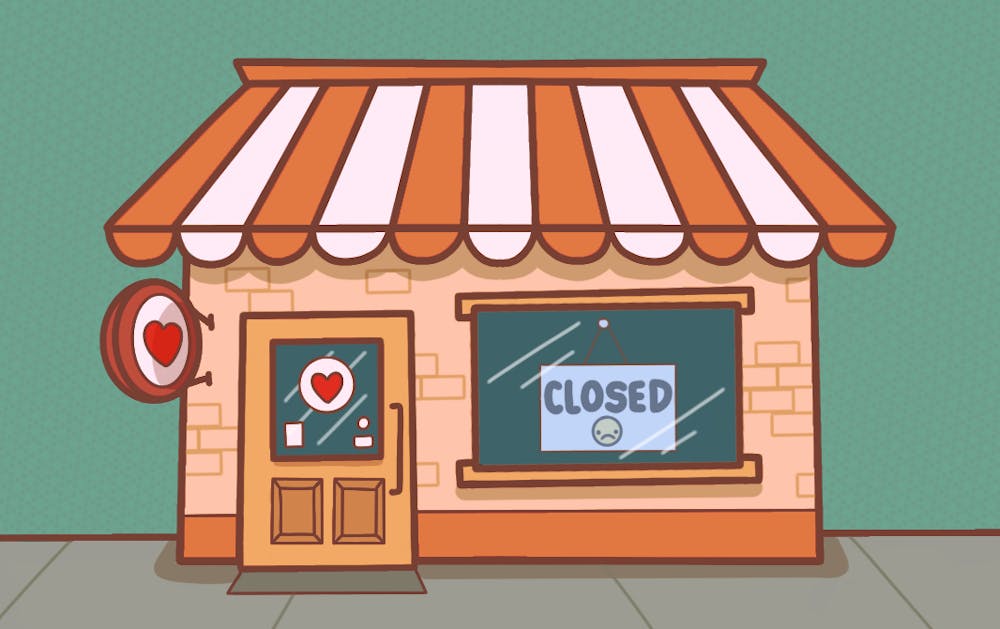The coronavirus pandemic has had a profound effect on the U.S. economy, with the financial crisis hitting too close to home.
Small businesses are among the most economically impacted. We’ve seen many of our favorite local coffee shops and restaurants switch to takeout service, with many even halting business temporarily to promote social distancing and slow the spread of the coronavirus.
These companies face an uncertain future. A report by Metlife and the U.S. Chamber of Commerce states that forty-three percent of small businesses project they will have to shut down permanently in less than six months, with one in ten believing it will be less than a month until they will have to do so.
Congress has passed a $2 trillion stimulus package to support the economy in the midst of this downturn. This included the Paycheck Protection Program which originally supplied $349 billion in loans and was recently replenished after running out to provide another $310 billion.
While it is important that Congress is taking action to support small businesses and the people who work for them, there are several flaws in this policy that limit effective aid to keep companies in business.
For example, the stimulus package granted substantial aid to chain restaurants. The company behind Potbelly Sandwich Shop received $10 million in loans and the parent company of Ruth’s Chris Steak House received $20 million in loans.
While the PPP’s loans are intended to help small businesses, these corporations met the program’s loose requirement of a company having under 500 employees at one location to qualify.
Along with allocating generous funds from the program to large companies, another flaw with Congress' legislation for small business relief is that the PPP primarily focuses on funding companies’ payroll expenses.
As an incentive for companies to use the program’s support to pay employees during this time, these loans turn into grants if they do so. However, while small businesses have to use their funds to pay employees, there is still a host of fixed costs, like rent, that need to be covered to run a company.
High fixed costs place a burden on small businesses and they need adequate support to be able to pay for them during this crisis.
W. P. Carey School of Business Professor Kelvin Wong said that if businesses are not supported, “many small businesses may end up shutting down.”
“These fixed costs are often much higher than the variable costs of day-to-day operations, so it does make sense for businesses to get some support so they can ride out this tough time,” Wong said.
But Wong said large businesses will likely be fine.
“I think many large businesses will have sufficient reserves to ride this out,” he said.
It is problematic that struggling small businesses are not getting the adequate support they need to survive, while large businesses — which have a far greater capacity to survive an economic downturn — are being handed massive sums.
There can be negative consequences if small businesses cannot stay afloat through this economic crisis. While a boost to big businesses would help those companies survive, smaller ones would be left unable to surmount turmoil.
A negative result of this is consolidation, where corporations grow in size by buying out smaller businesses. This lessens competition and increases the capital of large companies.
Wong said this would be a loss for consumers.
“Small businesses give consumers more choices and are able to sell a more 'specific' product than a large company can,” he said. “For instance, if we think food — maybe large chains like Cheesecake Factory or P. F. Chang's might be more equipped to survive this crisis, but people might want more options than just those larger restaurants."
Considering the host of threats small businesses face during this time, it is important they have adequate support.
Our legislation needs to provide funding that does not disproportionately benefit large businesses with sizable reserves.
We need to also make sure small businesses have support in paying other fixed costs — not just payroll. This would ensure these companies receive the necessary aid to stay open beyond this economic downturn.
After this crisis, if the small businesses central to our communities and economy can survive, it will be a worthwhile investment.
Reach the columnist at lhrabik@asu.edu or follow @lynettehrabik on twitter
Editor’s note: The opinions presented in this column are the author’s and do not imply any endorsement from The State Press or its editors.
Want to join the conversation? Send an email to opiniondesk.statepress@gmail.com. Keep letters under 500 words and be sure to include your university affiliation. Anonymity will not be granted.
Like The State Press on Facebook and follow @statepress on Twitter.




